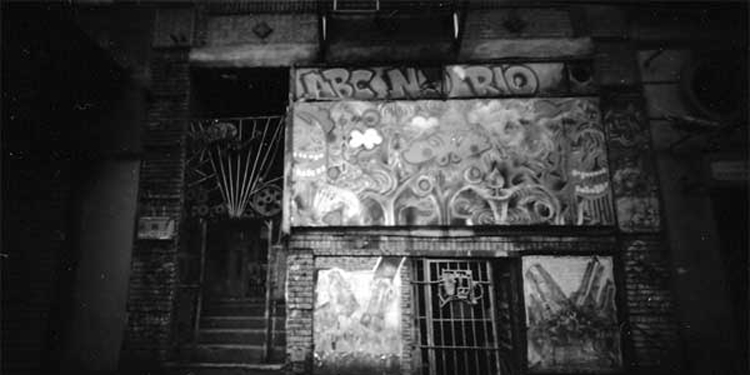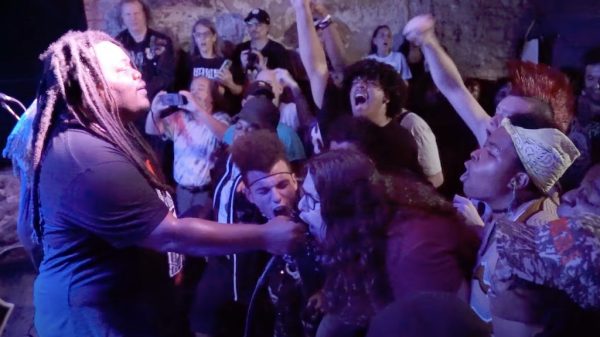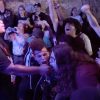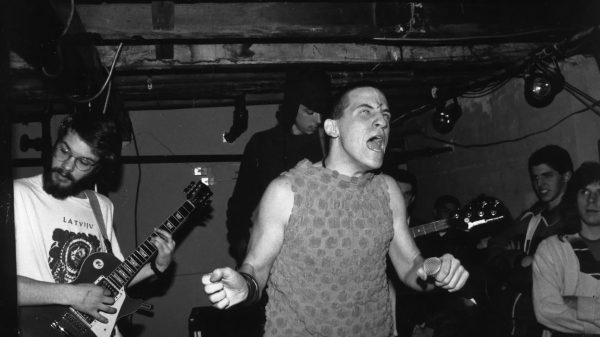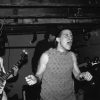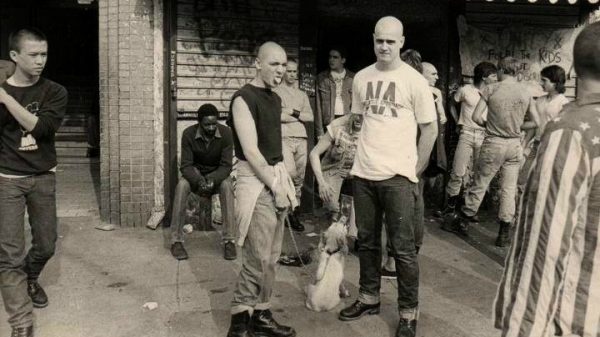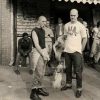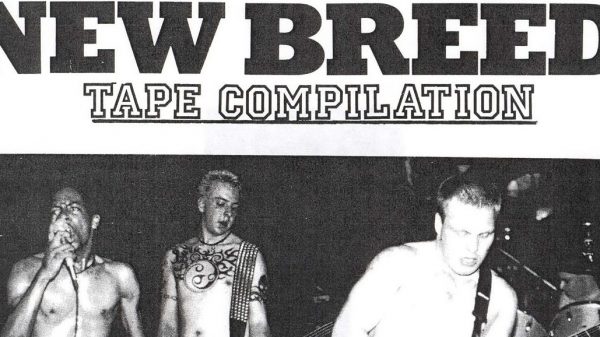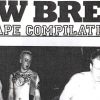ABC No Rio’s Beloved Hardcore Scene Transcends Its Physical Space
By JUDY BERMAN
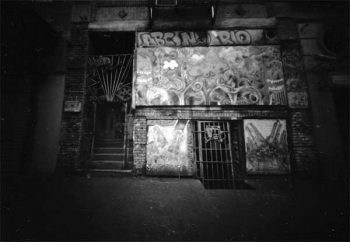 On a humid Saturday in early June, the graffiti-covered backyard of 156 Rivington on the Lower East Side teemed with punks. A charcoal grill flamed, an anarchist center tabled, and a crowd in torn T-shirts clustered around broken chairs until the call of amplified guitars summoned them into the building. Onstage — which is to say, on the floor at the far end of the room — the frontman of Ultor, a band listed on the flyer as “blackened crust/d-beat/death warcrust from Queens & LI,” barked: “Let’s hear it for this fuckin’ sweatbox we call ABC No Rio!” It all seemed a world away from the mimosa-buzzed brunch throngs prowling the same block.
On a humid Saturday in early June, the graffiti-covered backyard of 156 Rivington on the Lower East Side teemed with punks. A charcoal grill flamed, an anarchist center tabled, and a crowd in torn T-shirts clustered around broken chairs until the call of amplified guitars summoned them into the building. Onstage — which is to say, on the floor at the far end of the room — the frontman of Ultor, a band listed on the flyer as “blackened crust/d-beat/death warcrust from Queens & LI,” barked: “Let’s hear it for this fuckin’ sweatbox we call ABC No Rio!” It all seemed a world away from the mimosa-buzzed brunch throngs prowling the same block.
Few neighborhoods have changed as dramatically in recent decades as the L.E.S., but on this Saturday afternoon ABC No Rio looks much the same as it has since the musician and fanzine editor who goes by the nom de punk Mike Bullshit booked his first all-ages hardcore show there in December 1989. “On the weekends, it wasn’t really used,” Bullshit recalls. “So I just started booking.” The Saturday Matinees made ABC a mecca for hardcore, the intensified strain of punk born in California in the late Seventies that dominated the genre for the next decade with the rise of bands like Black Flag, Bad Brains, and Dead Kennedys.
Now ABC’s hardcore/punk collective is preparing to go into what members call “exile.” A new condo development is being installed next door, and the century-old building that houses ABC, which isn’t structurally sound enough to survive the neighboring construction, will be torn down. Charles Maggio, whose band Rorschach played the basement in its first month as a hardcore venue, says he’s shocked the place has survived even this long. “When I stepped into that building in late 1989,” he says, “I thought it was going to fall down.”
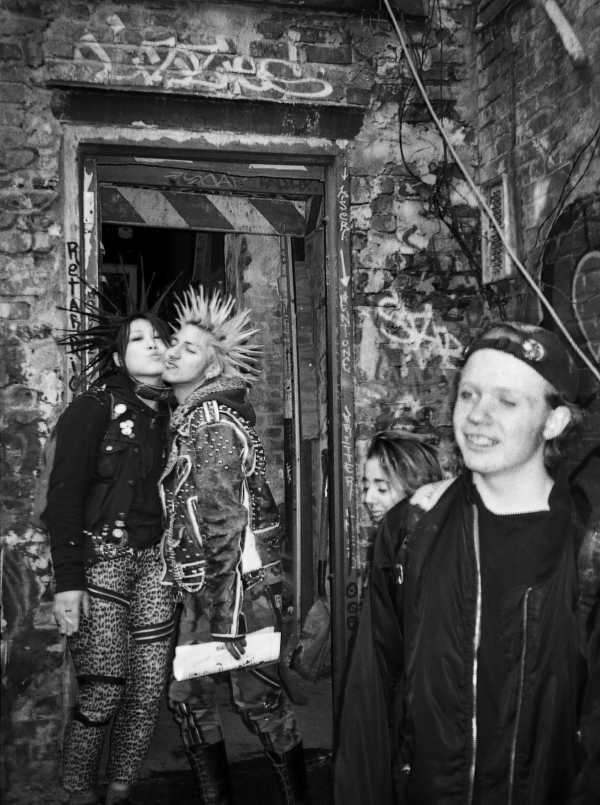
Photo: Konstantin Sergeyev
http://konstphoto.com
Through a combination of luck and occasional upkeep, it hasn’t, and in the intervening years ABC has succeeded in fostering and sustaining an alternative to a New York hardcore scene that was already decaying by the time Bullshit started booking his showcases. CBGB, previously the center of the local scene, had stopped hosting matinees after they became unbearably violent. “A friend of mine got the shit kicked out of him, and I realized I couldn’t go there anymore,” he says. “There were people who would go into the pit with a hammer.”
According to Tony Rettman, author of the oral history NYHC: New York Hardcore 1980–1990, “ABC brought a political awareness that wasn’t really there before.” It injected new ideas to revive the scene: Fighting was banned, along with racist, sexist, and homophobic bands. “It was the first place that had an across-the-board aesthetic,” says Rettman. “A lot of places adopted that afterwards.”
Not that ABC was paradise. Early shows took place in a dusty basement where you could catch a nail in the arm if you danced too close to a beam. And, like most utopian communities, it didn’t always live up to its lofty ideals: Anti-violence policy notwithstanding, fights occasionally broke out. But it was a haven for kids who felt alienated by CBGB’s aggressive vibe, and, says former booker Freddy Alva, the shows were just fun: “People would break out in conga lines.”
Read the full article on the Village Voice

